Tips & Tricks On Starting Your Business
Starting a business is an exciting yet challenging journey. It requires careful planning, determination, and an understanding of key financial and operational steps. At Business Financials Inc., we guide aspiring entrepreneurs on the path to success. Here are some essential tips and tricks to get your business off the ground:
1. Refine Your Business Idea
Your business idea is the foundation of your venture. Ensure that it solves a problem or fills a gap in the market. Conduct thorough research to assess your target audience, competition, and industry trends. A clear value proposition can set you apart from competitors.
2. Create a Business Plan
A solid business plan outlines your business’s objectives, target market, products or services, and financial projections. It serves as a roadmap, guiding your growth and helping you secure funding. Your plan should include the following sections:
- Executive Summary: A high-level overview of your business.
- Market Analysis: An assessment of your industry and target customers.
- Financial Projections: Revenue estimates, budget, and cash flow analysis.
3. Choose the Right Business Structure
Deciding on the right legal structure is critical. Options include sole proprietorship, partnership, limited liability company (LLC), and corporation. Each has its advantages and tax implications. An LLC, for example, offers personal liability protection and flexibility, while a corporation may be beneficial for raising capital. Consult with a legal professional or tax advisor to determine the best structure for your business.
4. Register Your Business and Obtain Licenses
Once you've chosen your business structure, it’s time to register your business name and obtain the necessary licenses. You'll need to:
- Register your business name with state and federal authorities.
- Get an Employer Identification Number (EIN) from the IRS for tax purposes.
- Apply for business licenses and permits, which vary by industry and location. Visit USA.gov to find out what’s required for your business type.
5. Secure Funding
Starting a business often requires capital. There are several options available for funding, including:
- Self-funding: Using personal savings or investment.
- Small business loans: Many banks and lenders offer business loans with favorable terms.
- Grants and Investors: Some businesses qualify for government grants or venture capital investments. Look into local options and discuss with financial advisors.
6. Set Up Accounting and Financial Systems
Organized finances are essential for a successful business. Set up accounting systems to track income, expenses, taxes, and other financial obligations. Consider using accounting software or hiring a professional accountant to ensure accuracy and compliance. Business Financials Inc. specializes in helping businesses create tailored financial systems to stay organized from the start.
7. Market Your Business
A great product or service won’t sell itself. You’ll need to create a marketing plan to attract customers. This includes:
- Building a website that showcases your offerings.
- Creating social media profiles on platforms like Facebook, Instagram, and LinkedIn.
- Utilizing SEO and digital marketing strategies to drive traffic to your site.
- Networking at industry events and joining local business groups.
8. Stay Compliant
Ensure your business complies with all tax obligations and employment laws. Keep up-to-date records, file tax returns on time, and familiarize yourself with regulations related to employee rights and business practices.
Final Thoughts
Starting a business involves many moving parts, but with proper planning and guidance, you can turn your vision into reality. At Business Financials Inc., we’re here to support you with expert financial advice, bookkeeping, and strategic planning to help you grow. Ready to take the first step? Contact us today to learn how we can assist with your business launch.
THIS ARTICLE IS FOR GENERAL INFORMATION PURPOSES ONLY. BUSINESS FINANCIALS, INC. (BFI) IS NOT ISSUING SPECIFIC FINANCIAL OR TAX ADVICE. PLEASE CONSULT WITH A LICENSED FINANCIAL PLANNER, TAX ATTORNEY, OR ACCOUNTANT FOR ASSISTANCE WITH YOUR SPECIFIC SITUATION. IF YOU NEED HELP, WE INVITE YOU TO CONTACT US. WE WILL BE HAPPY TO MAKE RECOMMENDATIONS OR REFER YOU TO A LICENSED PROVIDER WHO MAY BE BEST SUITED FOR YOUR SITUATION.
Sources:
https://www.forbes.com/advisor/business/how-to-start-a-business/
https://www.usa.gov/start-business





